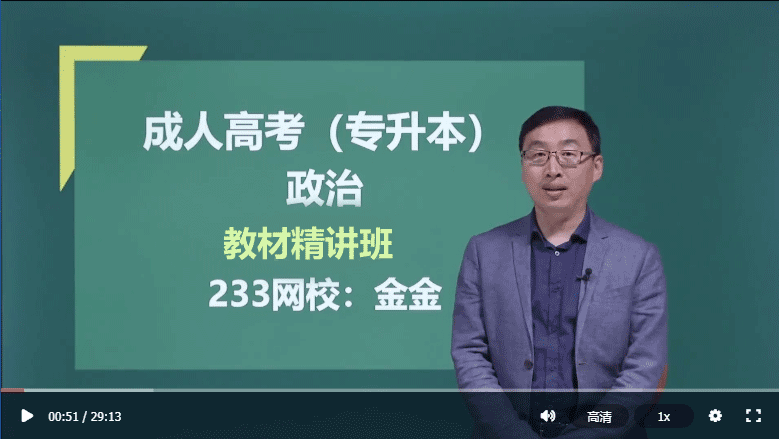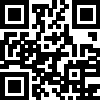φàêδΚΚιΪ‰ηÄÉε≠ΠδΫçη΄±η·≠η·çφ±΅δΗ≠φ‰™φΖΖφΖÜη·çδΚ¨
ψÄÄψÄÄ38. awakeοΦ¨ wakeοΦ¨ waken
ψÄÄψÄÄιÉΫεè·δΫ€εä®η·çψIJ
ψÄÄψÄÄawakeφ½Δεè·εèäγâ©οΦ¨δΙüεè·δΗçεèäγâ©οΦ¨εΛöγî®δΚéφ·îε•ΜψIJ
ψÄÄψÄÄwakeεΗΗφ¨΅βÄ€γùΓιÜ£βÄùοΦ¨εΛöδΗΚδΗçεèäγâ©εä®η·çψIJ
ψÄÄψÄÄwakenεΛöγî®δΫ€εèäγâ©εä®η·çοΦ¨εΗΗφ¨΅βÄ€εêΒιÜ£βÄùοΦ¨βÄ€φÉäιÜ£βÄùψIJ
ψÄÄψÄÄ39. awaitοΦ¨ wait
ψÄÄψÄÄawaitφ‰·εèäγâ©εä®η·çψIJεΠ²οΦöI await your further instructions.
ψÄÄψÄÄwaitβÄ€γ≠âβÄùψĹβÄ€γ≠âεÄôβÄùοΦ¨φ‰·δΗçεèäγâ©εä®η·çοΦ¨εêéεΗΗφéΞδΜ΄η·çfor.εΠ²οΦöI will wait for you at the school gate.
ψÄÄψÄÄ40. awardοΦ¨ prizeοΦ¨ reward
ψÄÄψÄÄawardοΦ¨ rewardδΫ€εä®η·çψIJawardφ³èδΗΚβÄ€φéàδΚàοΦàεΞ•ε™¹οΦ¨εΞ•ι΅ëγ≠âοΦâβÄùοΦ¨εêéιùΔεè·ηΖüεè¨ε°Ψη·≠οΦ¦rewardφ³èδΗΚβÄ€φäΞιÖ§βÄùοΦ¨βÄ€ιÖ§ηΑΔβÄùοΦ¨εèΣηÉΫηΖüδΚΚφà•δΜΞδΚΚγö³ηΓ¨δΗΚδΫ€ε°Ψη·≠ψIJ
ψÄÄψÄÄawardοΦ¨ prizeοΦ¨ rewardδΫ€εêçη·çφ½ΕοΦ¨awardεΗΗφ¨΅εΞ•ι΅ëοΦ¨εΞ•ε™¹οΦ¦prizeεΛöφ¨΅ε€®γΪûηΒ¦ψĹγΪûδΚâδΗ≠ηéΖηÉ€φâÄηΒΔεΨ½γö³εΞ•οΦ¦rewardεàôφ¨΅δΗΚφüêιΓΙεä≥εä®φà•ηΓ¨δΗΚφâÄδΜ‰γö³ιÖ§ι΅ëψIJ
ψÄÄψÄÄ41. baseοΦ¨ basis
ψÄÄψÄÄbaseηΓ®δΚ΄γâ©γö³δΗ΄ιÉ®γö³εΚïιÉ®οΦ¨εΛöγî®δΚéεÖΖδΫ™δΚ΄γâ©ψIJ
ψÄÄψÄÄbasisεΛöγî®δΚéφ·îε•ΜοΦ¨δΗΜηΠ¹φ¨΅εëΫιΔ‰γö³εüΚγΓÄψIJεΠ²οΦöHis ideas have no basis in reality.οΦàδΜ•γö³φ³èηß¹γΦΚδΙèγéΑε°ûεüΚγΓÄψIJοΦâ
ψÄÄψÄÄ42. beatοΦ¨ win
ψÄÄψÄÄbeatηΓ®ε€®φ·îη¦壨φà‰φ•½δΗ≠φâ™η¥Ξε·Ιφâ΄οΦ¨εêéφéΞε·Ιφâ΄δΫ€ε°Ψη·≠ψIJ
ψÄÄψÄÄWinδΫ€εèäγâ©εä®η·çφ½ΕοΦ¨εÖΕε°Ψη·≠δΗΚφΗΗφàèψĹφ·îηΒ¦ψĹφà‰φ•½ψĹεΞ•ι΅ëγ≠âεêçη·çψIJεΠ²οΦöHe has won the race.οΦàδΜ•ηΒΔεΨ½δΚÜηΒ¦ηΖëγö³ηÉ€εà©ψIJοΦâ
ψÄÄψÄÄ43. beneathοΦ¨ belowοΦ¨ under
ψÄÄψÄÄbeneathηΓ®γΛΚεê¨ηΓ®ιùΔφéΞηßΠοΦ¨δΗéon γ¦Ηε·ΙψIJBelowηΓ®γΛΚβÄ€ε€®δΗ΄ιùΔοΦ¨δΫéδΚéβÄùοΦ¨δΗéaboveγ¦Ηε·ΙψIJ
ψÄÄψÄÄunderηΓ®γΛΚβÄ€ε€®βÄΠβÄΠφ≠ΘδΗ΄φ•ΙβÄùδΗéoverγ¦Ηε·ΙψIJ
ψÄÄψÄÄ44. besideοΦ¨ besides
ψÄÄψÄÄbesideε€®βÄΠβÄΠφ½¹ηΨΙψIJεΠ²οΦöCome and sit beside me.
ψÄÄψÄÄbesidesιôΛβÄΠβÄΠδΙ΄εΛ•ψIJεΠ²οΦöI have two other umbrellas besides this one.
ψÄÄψÄÄ45. bigοΦ¨ greatοΦ¨ large
ψÄÄψÄÄbigεΦΚηΑÉδΫ™γß·οΦ¨η¥®ι΅èοΦ¨ε°Ιι΅è壨ι΅çι΅èεΛßψIJεΠ²οΦöa big box.BigδΙüφ€âφäΫη±Γφ³èδΙâοΦ¨φ¨΅ι΅çεΛßγö³δΚ΄δΜΕφà•ηΓ¨δΗΚψIJεΠ²οΦöa big mistake
ψÄÄψÄÄgreatεΗΠφ³üφÉÖηâ≤εΫ©οΦ¨εΛöφ¨΅γ®΄εΚΠ壨祮ι΅èοΦ¨φ¨΅εÖΖδΫ™δΚ΄γâ©φà•δΚΚφ½ΕοΦ¨ηΓ®βÄ€γΣ¹ε΅ΚβÄùοΦ¨βÄ€εΦïδΚΚφ≥®γ¦°βÄùψIJ
ψÄÄψÄÄεΠ²οΦöa great man
ψÄÄψÄÄlargeεΛöφ¨΅ιùΔγß·οΦ¨φïΑγ¦°φà•φïΑι΅èεΛßψIJεΠ²οΦöa large populationοΦ¨ a large numberγ≠âψIJ
ψÄÄψÄÄ46. bloomοΦ¨ blossom
ψÄÄψÄÄbloomεΛöφ¨΅δΨ¦ηß²ηΒèφΛçγâ©γö³εΦÄηä±ψIJεΠ²οΦöThe roses are blooming.
ψÄÄψÄÄblossomεΛöφ¨΅φû€φ†ëγ≠âφΛçγâ©γö³εΦÄηä±ψIJεΠ²οΦöThe apple trees are blossoming.
ψÄÄψÄÄ47. borrowοΦ¨ lend
ψÄÄψÄÄborrowεÄüεÖΞψIJεΠ²οΦöCan I borrow your pen for a momentοΦü
ψÄÄψÄÄlendφääβÄΠβÄΠεÄüγΜôψIJεΠ²οΦöCan you lend me your bikeοΦü
ψÄÄψÄÄ48. bringοΦ¨ take
ψÄÄψÄÄbringεΗΠφùΞψIJεΠ²οΦöBring me some waterοΦ¨ please.
ψÄÄψÄÄtakeφ΄ΩηΒΑψIJεΠ²οΦöShall I take some flowers when I go and see herοΦü
ψÄÄψÄÄ49. calculateοΦ¨ computeοΦ¨ estimate
ψÄÄψÄÄcalculateιÄöεΗΗφ¨΅γî®φïΑε≠Πφ•Ιφ≥ïηΩ¦ηΓ¨φ·îηΨÉεΛçφù²οΦ¨ιöΨεΚΠηΨÉεΛßγö³η°Γγ°½ψIJεΠ²οΦöYou canβĉt expect a schoolboy to calculate distances in astronomy.
ψÄÄψÄÄcomputeεΗΗφ¨΅φ·îηΨÉγ°Äεçïγö³ηΩêγ°½ψIJεΠ²οΦöIt was computed that two thirds of the students in the class passed the examination.
ψÄÄψÄÄestimateδΦΑη°ΓοΦ¨εΗΗφ¨΅ε·ΙφïΑι΅èψĹφàêφ€§γ≠âδΚ΄εÖàηΩ¦ηΓ¨εàΛφ•≠φà•δΦΑη°ΓψIJεΠ²οΦöSome farmers asked the weatherman to estimate next yearβĉs rainfall.
ψÄÄψÄÄ50. cheatοΦ¨ deceiveοΦ¨ trick
ψÄÄψÄÄcheatφ§ΚιΣ½οΦ¨εΗΗγî®η·çοΦ¨δΗΜηΠ¹φ¨΅δΗΚδΚÜη΅ΣεΖ±γö³εà©γ¦äφ§ΚιΣ½δΚΚψIJ
ψÄÄψÄÄdeceiveηΓ®γΛΚιöêγû£γ€üγ¦Ηφà•δΜΞε¹΅γ¦ΗιΣ½δΚΚψIJεΠ²οΦöThe boy deceived the teacher by lying.
ψÄÄψÄÄtrickε™³ιΣ½οΦ¨ηΓ®γΛΚηÄçφâ΄φ°ΒηΩ¦ηΓ¨φ§ΚιΣ½οΦ¨εΦΚηΑÉε€®ηΓ¨ιΣ½φ½ΕδΫΩγî®η°Γγ≠•οΦ¨φ€âφ½ΕδΙüφ¨΅εΙΕιùûε΅ΚδΚéφ¹Εφ³èγö³φ§ΚιΣ½ψIJεΠ²οΦöTom cleverly tricked his mother into approval.
γ¦ΗεÖ≥φé®ηçê
- 2017εΙ¥φàêδΚΚιΪ‰ηÄÉδΗ™εç΅φ€§η΄±η·≠ηÄÉη·ïεéÜεΙ¥γ€üιΔ‰δΫ€φ•΅γ≤ΨιÄâφ±΅φÄΜ03-28
- 2017εΙ¥φàêδΚΚιΪ‰ηÄÉδΗ™εç΅φ€§η΄±η·≠ηÄÉη·ïεéÜεΙ¥γ€üιΔ‰δΫ€φ•΅γ≤ΨιÄâδΙù03-24
- 2017εΙ¥φàêδΚΚιΪ‰ηÄÉδΗ™εç΅φ€§η΄±η·≠ηÄÉη·ïεéÜεΙ¥γ€üιΔ‰δΫ€φ•΅γ≤ΨιÄâεÖΪ03-24
- 2017εΙ¥φàêδΚΚιΪ‰ηÄÉδΗ™εç΅φ€§η΄±η·≠ηÄÉη·ïεéÜεΙ¥γ€üιΔ‰δΫ€φ•΅γ≤ΨιÄâδΗÉ03-24
- 2017εΙ¥φàêδΚΚιΪ‰ηÄÉδΗ™εç΅φ€§η΄±η·≠ηÄÉη·ïεéÜεΙ¥γ€üιΔ‰δΫ€φ•΅γ≤ΨιÄâεÖ≠03-24
| ΩΈ≥ΧΉ®“ΒΟϊ≥Τ | Ϋ≤ Π | ‘≠Φέ/”≈ΜίΦέ | ΟβΖ―Χε―ι | ±®Οϊ |
|---|---|---|---|---|
| ”οΈΡ(ΗΏΤπΒψ)ΨΪΫ≤Αύ | ΒΥΨΐΟΡ | ΘΛ150 / ΘΛ150 |  |
±®Οϊ |
| ”Δ”ο(ΗΏΤπΒψ)ΨΪΫ≤Αύ | Monica | ΘΛ150 / ΘΛ150 |  |
±®Οϊ |
| ΐ―ß(ΈΡ)ΨΪΫ≤Αύ | ΆθΖΦ | ΘΛ150 / ΘΛ150 |  |
±®Οϊ |
| ΐ―ß(άμ)ΨΪΫ≤Αύ | ¬ό”Ή÷Ξ | ΘΛ150 / ΘΛ150 |  |
±®Οϊ |
| ¥σ―ß”οΈΡ(Ή®…ΐ±Ψ)ΨΪΫ≤Αύ | ≈Ζ―τΑΊΝΊ | ΘΛ150 / ΘΛ150 |  |
±®Οϊ |
| ”Δ”ο(Ή®…ΐ±Ψ)ΨΪΫ≤Αύ | Monica | ΘΛ150 / ΘΛ150 |  |
±®Οϊ |
| ΗΏΒ» ΐ―ß(“Μ)(Ή®…ΐ±Ψ)ΨΪΫ≤Αύ | ΆθΧΈ | ΘΛ150 / ΘΛ150 |  |
±®Οϊ |
| ΗΏΒ» ΐ―ß(Εΰ)(Ή®…ΐ±Ψ)ΨΪΫ≤Αύ | ¬ό”Ή÷Ξ | ΘΛ150 / ΘΛ150 |  |
±®Οϊ |
Η®ΒΦΩΈ≥Χ
- ΗΏΤπΒψ- ΐ―ß(ΈΡ Ζ≤ΤΨ≠άύ)

- ΆθΖΦάœ Π
 ΟβΖ― ‘Χΐ
ΟβΖ― ‘Χΐ
- ΗΏΤπΒψ-”Δ”ο

- Monicaάœ Π
 ΟβΖ― ‘Χΐ
ΟβΖ― ‘Χΐ
- Ή®…ΐ±Ψ-¥σ―ß”οΈΡ

- ≈Ζ―τΑΊΝΊάœ Π
 ΟβΖ― ‘Χΐ
ΟβΖ― ‘Χΐ
ΑύΦΕΫι…ή
ΧΉ≤ΆΑϋΚ§ΘΚΉ®…ΐ±ΨVIPΑύ/ΗΏΤπΒψVIPΑύΘ®Κ§ΨΪΫ≤+’φΧβΫβΈω+ΡΘΩΦΒψΧβ)
ΧΉ≤Ά”≈ ΤΘΚ1ΓΔΥχΕ®ΚΥ–ΡΩΦΒψ
2ΓΔΩΦ«ΑΖΔΖ≈2ΧΉ ‘Χβ
3ΓΔΟβΖ―÷Ί―ß“Μ¥Έ±Θ’œ
≈δΧΉΖΰΈώΘΚ1ΓΔΟβΖ―ΧβΩβ
2ΓΔΩΈ≥ΧΫ≤“ε+ΩΈΦΰœ¬‘Ί+“ΤΕ·ΩΈΧΟ







 ΟβΖ― ‘Χΐ
ΟβΖ― ‘Χΐ 




